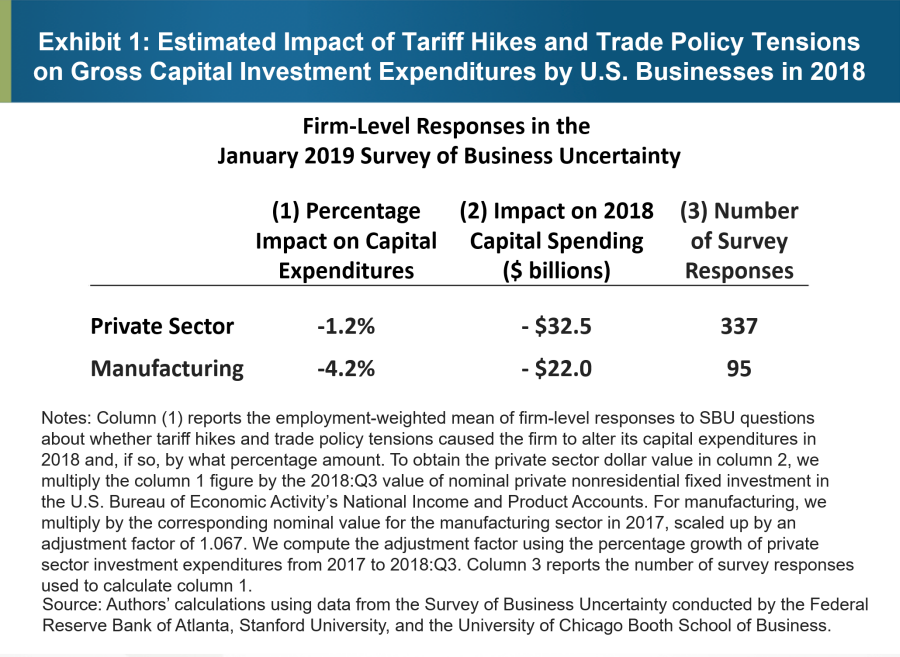OpenAI's ChatGPT: FTC Probe Into AI Ethics And Data Privacy

Table of Contents
Ethical Concerns Surrounding ChatGPT's Use
ChatGPT's capabilities, while impressive, present a range of ethical dilemmas. Its very nature—trained on vast datasets of text and code—introduces inherent risks that require careful consideration.
Biased Outputs and Algorithmic Discrimination
ChatGPT's training data, sourced from the vast expanse of the internet, inevitably contains biases reflecting societal prejudices. This can lead to the model generating outputs that perpetuate or even amplify these biases, resulting in algorithmic discrimination.
- Examples of biased outputs: ChatGPT might associate certain professions disproportionately with specific genders, or exhibit racial biases in its responses.
- Mitigating bias in large language models: Addressing this challenge requires careful curation of training data, algorithmic adjustments to reduce bias amplification, and ongoing monitoring of the model's output for discriminatory patterns.
- Ethical implications: Biased outputs can have serious consequences, impacting individuals' opportunities and reinforcing societal inequalities. This necessitates a robust ethical framework for AI development.
Misinformation and the Spread of Falsehoods
ChatGPT's ability to generate convincingly realistic text makes it a potent tool for the creation and dissemination of misinformation. The model can effortlessly craft convincing-sounding, yet entirely fabricated, narratives.
- Risk of misinformation campaigns: Malicious actors could exploit ChatGPT to create and spread disinformation at scale, influencing public opinion and undermining trust in legitimate sources.
- Detecting AI-generated misinformation: Identifying AI-generated falsehoods is increasingly challenging, requiring sophisticated detection methods and media literacy among consumers.
- Responsible AI development: Developing and deploying AI responsibly necessitates incorporating mechanisms to minimize the potential for misuse and misinformation. This includes fact-checking capabilities and clear labeling of AI-generated content.
Copyright Infringement and Intellectual Property Rights
The legal landscape surrounding AI and copyright is still largely uncharted territory. ChatGPT's training data comprises vast amounts of copyrighted material, raising questions about fair use and potential infringement.
- Fair use and AI: The application of traditional copyright principles to AI models presents significant complexities, demanding careful legal analysis and interpretation.
- Potential legal challenges: OpenAI, and other AI developers, face potential legal challenges from copyright holders claiming infringement.
- Impact on creators: The use of copyrighted material without proper compensation poses ethical and economic concerns for creators and copyright holders.
Data Privacy Issues and User Data Protection
The use of ChatGPT raises critical questions about data collection, usage, and protection. Transparency and user consent are paramount, especially given the sensitivity of the data involved.
Data Collection and Usage Transparency
OpenAI's data collection practices and the level of transparency provided to users are central to the FTC's investigation.
- Data collected and its usage: Understanding precisely what data is collected (including user inputs and interactions) and how it is used is crucial for assessing compliance with data privacy regulations.
- User consent and data privacy regulations: Compliance with regulations like GDPR and CCPA is essential. Users must be informed and provide explicit consent for data collection and processing.
- Data breaches and misuse: Robust security measures are vital to prevent data breaches and the potential misuse of personal information.
Protecting Children's Data and Privacy
Children represent a particularly vulnerable group when it comes to online data privacy.
- Age verification and data protection: Effective age verification mechanisms and stringent data protection measures are necessary to safeguard children's information.
- Ethical responsibilities of AI developers: AI developers have a moral and ethical responsibility to protect child users from potential harms.
- Stricter regulations for children's data: The online landscape requires stricter regulations specifically addressing the collection and use of children's data.
Security Risks Associated with ChatGPT and Data Leaks
The very architecture of ChatGPT and its data storage present potential security vulnerabilities.
- System vulnerabilities: Identifying and addressing potential weaknesses in the system's design and security protocols is critical.
- Impact of security breaches: Data leaks can erode user trust and have significant legal and reputational consequences for OpenAI.
- Robust security measures and audits: Regular security audits and the implementation of robust security measures are crucial to mitigate these risks.
The FTC Investigation and Potential Outcomes
The FTC's investigation into OpenAI's practices is a watershed moment for AI regulation.
The FTC's Focus and Areas of Concern
The FTC's focus is likely on several key areas:
- Potential violations of consumer protection laws: The FTC will scrutinize OpenAI's compliance with consumer protection laws regarding data privacy, transparency, and security.
- Scope and timeline of the investigation: The breadth and duration of the investigation remain to be seen, but its impact on the AI industry is undeniable.
- Potential penalties: Depending on the findings, OpenAI could face significant penalties, including fines and changes to its practices.
Implications for the Future of AI Regulation
The FTC's actions will significantly shape future regulations for AI development and deployment.
- Comprehensive AI ethics guidelines: The need for clear and comprehensive ethical guidelines for AI development is more urgent than ever.
- Role of government and regulatory bodies: Government oversight and regulatory frameworks will play a crucial role in ensuring the responsible development and use of AI.
- Impact on the AI industry: The outcome of the investigation will influence the trajectory of the AI industry, potentially slowing down innovation in some areas but promoting responsible practices in others.
Conclusion: Navigating the Ethical Minefield of ChatGPT and the Future of AI
The FTC investigation into OpenAI's ChatGPT highlights the complex ethical and data privacy challenges posed by powerful AI systems. The concerns surrounding biased outputs, misinformation, copyright infringement, data security, and the protection of children's data demand immediate attention. Responsible AI development and deployment, emphasizing transparency, accountability, and user protection, are paramount. Understanding the ethical and data privacy challenges posed by OpenAI's ChatGPT is crucial. Stay informed about the FTC investigation and advocate for responsible AI development to ensure a future where AI benefits all of humanity.

Featured Posts
-
 February 20 2025 A Guide To A Happy Day
Apr 29, 2025
February 20 2025 A Guide To A Happy Day
Apr 29, 2025 -
 Tariff Uncertainty Drives U S Businesses To Cut Costs
Apr 29, 2025
Tariff Uncertainty Drives U S Businesses To Cut Costs
Apr 29, 2025 -
 Hungarys Stand Against Us Pressure Preserving Economic Links With China
Apr 29, 2025
Hungarys Stand Against Us Pressure Preserving Economic Links With China
Apr 29, 2025 -
 Higher Earning Trends Minnesota Immigrant Workforce Data
Apr 29, 2025
Higher Earning Trends Minnesota Immigrant Workforce Data
Apr 29, 2025 -
 Missing Person British Paralympian Sam Ruddock Last Seen In Las Vegas
Apr 29, 2025
Missing Person British Paralympian Sam Ruddock Last Seen In Las Vegas
Apr 29, 2025
